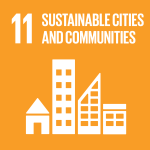
Photo: UNDP Pakistan
Mingora Swat - This week UNDP has held a three-day training for journalists on responsible reporting on climate change and glacial lake outburst floods (GLOF) in Khyber Pakhtunkhwa.
The training was organized by the UNDP-supported project 'Scaling Up of Glacial Lake Outburst Flood Risk Reduction in Northern Pakistan' (also known as GLOF-II), a joint initiative with the Ministry of Climate Change supported by Green Climate Fund. The training briefed 27 journalists from Chitral, Swat, Upper Dir, Peshawar, and Kohistan on the catastrophic impacts of climate-induced disasters such as GLOF, torrential rains, and floods. They were also briefed on how to ethically and responsibly report these disasters through various news mediums, given their implications on human lives and habitations.
The training sessions also included in-depth discussions on ethics of digital journalism, storytelling, multimedia reporting, narrative journalism, creative formats, hand-held shooting techniques, and journalists’ safety and security. The participating journalists shared their own experiences of reporting as well especially during the floods of 2022.
Trainings on responsible and ethical reporting on climate-induced disasters is important considering foreseeable GLOF events in the monsoon season because of global warming.
“To understand the ethics of journalism is essential, especially when it relates to the unshakable reality of climate change. We as journalists hold a huge responsibility to inform people on the happenings of the climate without inflicting undue stress on them as they are first-hand victims” - Participant
The training for journalists was the first in the series of trainings by the GLOF-II Project; more journalists’ trainings will be rolled out in Gilgit Baltistan and Islamabad in the coming months.
The project operates in 16 valleys of Gilgit Baltistan and 8 valleys in Khyber Pakhtunkhwa. It empowers communities to identify and manage risks associated with GLOFs and related impacts of climate change, strengthen public services to lower the risk of disasters related to GLOF, and improve community preparedness and disaster response. The project also supports development of sustainable options for livelihoods in project areas, with a particular focus on the participation of women in ensuring food security and livelihoods.
View the original news release by UNDP Pakistan here.
For additional information, please contact Ayesha Babar at ayesha.babar@undp.org or +92 (51) 835 5650


